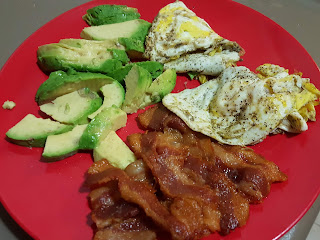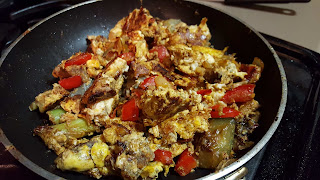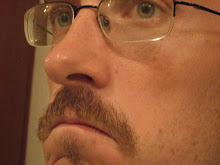 |
| Temple of the Emerald Buddha |
|
There's a lot I could say about Thailand. But instead of rambling on and on, I'll merely ramble a moderate amount. And I'll boil it down to the burning questions that I can only assume are keeping you up at night. :) Let us begin.
(Note: I included just a few pictures in this post, you can find many more in this album.)
When did you go to Thailand?
August 6-27.
Wow, that's a long trip. So you were in Thailand for three weeks?
Not quite. The cumulative flights lasted about 35 hours, and I had a 13-hour layover in Seoul, South Korea each way.
What did you do with all that time in South Korea?
On the first layover, I took advantage of some free tours that are offered from the airport (perhaps as a response too the long layovers that appear to be common with Korean Airlines). The tours took me to a small temple, a big temple, a Korean restaurant, and a popular shopping street in the Seoul area. Between the tours, customs, and security, it took up most of the 13 hours. And now I can reasonably say I've "been to" Korea. :)
On the way home, I opted instead to explore the airport itself, partly because it's
routinely ranked best airport in the world and has some remarkable amenities, but mainly because I wanted to sleep. After eating, I used one of the nap rooms and managed to sleep for over 7 hours! Then I took a shower in one of the shower rooms that are complimentary for transfer passengers.
What did you do with 35 hours of flight time?
Some sleeping, reading, writing, and eating, and I watched five movies. I also got up to walk around and stretch quite often because A) I don't want a blood clot, and B) It hurts the behind to sit so long.
Why did you choose Thailand over other potential destinations?
It was basically a coin flip between South America, Europe, and Southeast Asia. Various friends and family had recommended Thailand to me, and I'd
only been to Asia once before, on a much shorter trip.
Did you go to Thailand by yourself?
Absolutely. While naturally there are pros and cons to traveling alone, I think overall I prefer it, in
a very Vagabonding sort of way.
While it's obviously fun to travel with friends, there are also advantages to traveling alone: You can interact a lot more with the locals (and other travelers), go where your whims take you, be on your own schedule, and have a chance to practice the language. In my opinion that last point is too often overlooked, as traveling with friends from home usually means speaking English 99% of the time, with little or no real language practice.
Speaking of language, did you learn how to speak Thai?
I tried! I decided 2.5 weeks was enough time to give it a whirl, especially since I was going alone, and I thought it would be a fun and interesting challenge to learn an Asian language (with
tones and characters) for the first time.
 |
| beaches on Ko Lan |
I wrote about my experience learning the Thai language
in much more detail here, but in summary I tried to learn the most common and useful words, practiced them with everyone I met, and though I was still extremely limited in my vocabulary and understanding, people were nearly always very impressed. So much so that they had a hard time believing I'd only been learning for 1-3 weeks (depending on when I met them).
Why do you have a website about medical Spanish?
It's part of a project I'm working on, the culmination of which will be a course to teach medical providers how to speak Spanish with their Latino patients.
Anyway, back on topic. Where did you go in Thailand?
I spent most of my time in Bangkok, took a day-trip to Ayutthaya (one hour North of Bangkok by bus / van) to see the ruins, and later spent a few days in the Pattaya area (two hours Southeast from Bangkok by bus) where I was able to go to the beach and take a boat out to a nearby island. I hung out on the island for most of a day and rented a scooter to get around, since the island is rather large.
I considered taking a long (possibly overnight) train or bus ride to a more distant area, partly because everyone (and their dog) recommended going to Phuket (in the South) and Chiang Mai (in the North). But ultimately my priority wasn't to
see the whole country, and I didn't want to spend a lot of time or money simply
traveling. I was already in Thailand, and I didn't need to go very far to experience some of the culture, see some historical and aesthetic sites, meet Thai people, eat Thai food, and practice the language. There's a lot to see and do in Bangkok alone, and the other two destinations were a nice addition without too much travel time or expense. I'll save the rest of a country for a subsequent visit.
Oh really...when are you going back?
Well...I have no idea. :) But it would be nice.
Where did you stay all this time?
I found a couple rooms on Airbnb, the first of which (in Bangkok) cost me $14/night; the second (in Pattaya) was $12/night. And the amenities weren't bad.
Was everything in Thailand that cheap?
If you're careful, yes. Basically you could eat for about $5/day if you play your cards right, have a decent place to stay for under $15/day as I mentioned above, and use public transportation for a few more dollars each day to get wherever you want to go (within reason). It may be expensive to
get to Thailand in the first place, and like anywhere there are upscale businesses that appeal to the rich and famous, but overall it was a very cost-effective trip considering I went halfway around the world.
 What are some of the specific attractions you visited?
What are some of the specific attractions you visited?
At the risk of boring you with unfamiliar details (feel free to refer back to this part right before or after your next trip to Thailand), here goes...
In Bangkok: I visited the Grand Palace, Temple of the Emerald Buddha, a few other very ornate temples (Wat Pho, Wat Arun...), and a secondary palace (right next to the zoo). I rode in a tuktuk and took some taxi rides, but mainly used the subway system, which I became quite comfortable with. I took a few boat rides on the Chao Phraya River that cuts through the center of the city, went to the two biggest shopping malls and various others (including one my sister-in-law recommended), and visited some very large local markets (day and night varieties), such as Chatuchak (aka Jatujak, in Thai) and Rot Fi Rachada. I checked out the famous Khaosan Road and surrounding streets, attended some free Muay Thai matches at a local TV station (though I had to buy a black shirt to get in, since I was wearing red and the country is in a period of mourning), visited Chinatown a few times, and wandered through some of the nightlife areas to see what it was all about. I rode on a big Ferris Wheel at an outdoor mall, and ate more street food than you can shake a stick at.
In Ayutthaya: I rented a bicycle and saw the ruins of an ancient capital that was destroyed by the Burmese in the 1700's, rode an elephant, and fed the elephants (which is really cool, because they grab the vegetables right out of your hand with the tip of their trunk).
In Pattaya: I walked the famous "Walking Street" (saw some amazing break dancers there), and repeatedly rode on the "Songtaews" (the main public transport there, two benches welded onto the back of a pickup truck). I took a ferry to the island called Ko Lan where I rented a scooter and visited five beaches in one day. I happened upon a night market in the neighboring city of Jomtien, and also visited the largest weekend market in the area, on Thepprasit Road.
There are many more things, but that's a reasonable summary of the notable destinations.
Did you make any friends in Thailand?
Quite a few actually. I guess that happens naturally when you constantly talk to everyone you meet or see to practice the language.
Some of the people I met were valuable resources later when I had questions about how to get somewhere or how to say something in Thai.
Of note, I spent a full day, and part of another, hanging out out with my sister-in-law's sister-in-law's brother, and his wife and son. Yes, you read that correctly. :) They showed me around some additional areas in Bangkok, and assisted me to sample many varieties of local cuisine.
 |
| Eating lunch with Tony. He's having rice. |
In a more random example, I ran into a young Chinese tourist named Tony who asked if he could tag along when I went to the island, so we spent the whole day riding around together. I taught him how to say "Do you have any rice?", since that's what he always wanted to eat.
Did you see a lot of Chinese tourists there?
Hordes.
So did you do everything you set out to do on the trip?
Yes. My stated goals were to ride an elephant, see some temples, go the beach, and eat lots of Thai food, and I did all of those things. I also made substantial progress with the language, a goal that I didn't adopt until one week before the trip.
 |
| Riding an elephant in Ayutthaya |
Is there controversy surrounding the riding of elephants?
Indeed there is. I didn't learn this until after I went on a ride (convenient, I know), but apparently the
elephants tend to be mistreated when they are raised to give rides, particularly in the way they are poked behind the ear with a sharp metal instrument to keep them on the desired path. I suppose you could make similar arguments about any beasts of burden, but suffice it to say there are those who disagree with the practice of riding elephants.
Was it really crowded in the places you went? Other than the hordes of Chinese tourists, I mean.
There was an odd juxtaposition of very crowded areas in certain streets, markets, and businesses with a lot of restaurants that appeared completely empty. Apparently it was the low season because it's also the rainy season. Most days it rained for about an hour, maybe two, usually in the evening. I generally carried an umbrella, but I was also pretty lucky about being indoors or under some shelter when it rained. And some days it didn't rain at all. They say the busy season is October through January, or thereabouts, because the weather is nicer (cooler, and less rain), but I think I'd prefer the rain and heat over crowdedness.
Was it hot? Did you sweat like a pig?
Yes and yes. Which is fitting because I also ate like a pig at times, especially at the markets. The temperature wasn't actually that extreme, with highs in the upper 80's most days, but it's also very humid, and I was outside walking a lot. I was always sweaty and gross by the end of the day, and invariably took a shower before bed. At least the rooms I stayed in had AC.
Wouldn't you say at this point that you have rambled on, and on, and perhaps on?
Wait till I get going! Just kidding (which by the way in Thai is "Law len naw"), the end is near.
With all this talk of food, how much weight did you gain on the trip?
Surprisingly, none. In retrospect, this can likely be attributed to eating a ton of fruit (perhaps literally), as it was readily available on the street and appeared a healthier alternative to the other street food (thought I certainly sampled that as well, and often). Additionally, I had a natural tendency towards some
time-restricted feeding (closely related to intermittent fasting) as a result of typical daily logistics. Oh, and I fasted for 22 hours on my last day because I was in a hurry to get around before packing up and rushing off to the airport, so I didn't eat anything until after I was on the plane, around midnight.
What did you like the most about Thailand?
Meeting the locals, speaking just enough of their language to do so, learning said language, eating the food, and seeing a variety of cool things along the way. I loved the markets, mainly for the food, and the street food was great in other places as well. I enjoyed driving the scooter all over the island, and found the Muay Thai matches very entertaining as well. I could go on...
Anything else on your mind?
The jet lag from a trip like this is remarkable. I've now reached modest lucidity, but will still likely crash before 9pm for a few more days.
In other news, due to paperwork delays I won't be starting my new full-time job at least until October....so I may go another trip somewhere. But probably a much shorter trip, and within a few time zones of home, to avoid a second round of circadian rhythm mayhem.























